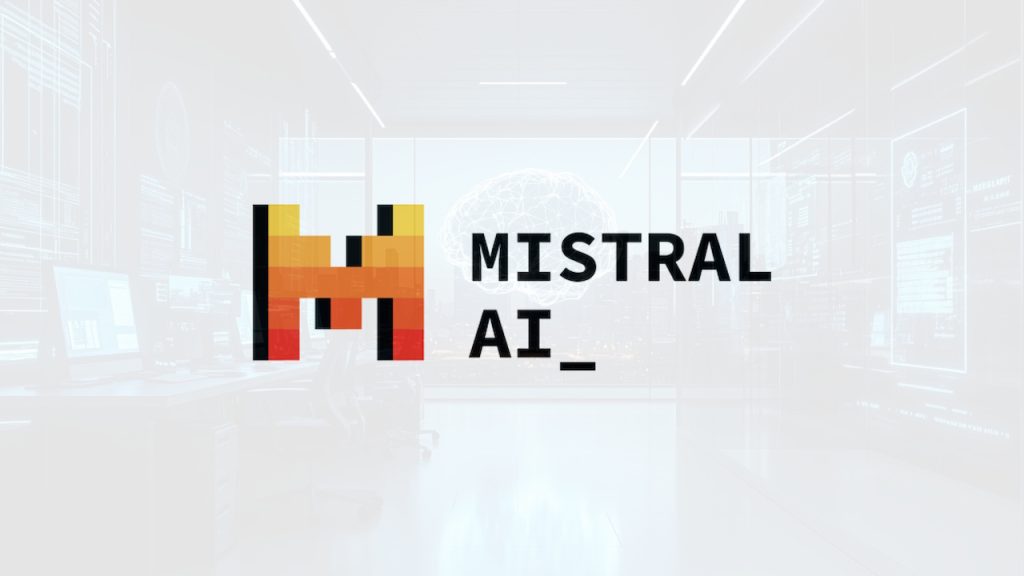Paris-based Mistral AI has launched a memory feature for its Le Chat assistant, making it the latest major player to compete in the increasingly crowded field of personalized AI.
The new “Memories” feature allows the chatbot to recall details from past conversations to provide more tailored responses.
The move places Mistral in direct competition with established rivals like OpenAI, Google, and Anthropic, each of whom offers a similar capability.
However, Mistral is differentiating itself by adopting a privacy-focused, opt-in approach, contrasting with the “always-on” memory systems of some competitors.
This launch signals a clear trend towards more personal, context-aware AI assistants as the battle for user loyalty intensifies. It also arrives as part of a dual strategy, paired with the release of over 20 enterprise-grade connectors.
Mistral’s Cautious Entry Into AI Memory
Mistral is deliberately framing its new feature around user control and transparency. The “Memories” function is an opt-in beta, ensuring users actively consent to their data being stored. The company provides detailed documentation on its data handling practices.
Users have granular control to view, edit, or delete any information the assistant has stored. This positions Le Chat as a thoughtful alternative in a market where AI recall has sparked both excitement and significant privacy concerns.
A Tale of Two Philosophies: The AI Memory Arms Race
Mistral’s launch highlights a growing divide in the philosophy behind AI memory. On one side are OpenAI and Google, which have embraced a persistent, “always-on” model. OpenAI upgraded ChatGPT in April 2025 to implicitly reference a user’s entire chat history.
Google followed a similar path, updating Gemini in August 2025 with an on-by-default automatic memory. Google’s Senior Director for the Gemini app, Michael Siliski, said the goal is that “the Gemini app can now reference your past chats to learn your preferences, delivering more personalized responses the more you use it.”
This strategic divergence reflects a fundamental debate in AI development. The “always-on” camp bets on creating a deeply integrated, proactive assistant that anticipates user needs. The “user-initiated” camp prioritizes transparency, betting that users value predictability and control over autonomous learning.
Google, for its part, attempts to bridge this gap. While its memory is persistent, spokesperson Elijah Lawal said that “equally crucial is giving you easy controls to choose the experience that’s best for you, so you can turn this feature on and off at any time,” pointing to its “Temporary Chats” feature as proof.
On the other side of the divide are Anthropic and now Mistral. Anthropic introduced a memory feature for Claude in August 2025 that stands in stark contrast to the persistent models.
According to spokesperson Ryan Donegan, “it’s not yet a persistent memory feature like OpenAI’s ChatGPT. Claude will only retrieve and reference your past chats when you ask it to, and it’s not building a user profile.”
This design aligns with the company’s public safety framework. CEO Dario Amodei has framed this human-centric approach as essential, stating “we’re heading to a world where a human developer can manage a fleet of agents, but I think continued human involvement is going to be important for the quality control…”
The competitive landscape is now well-defined. Microsoft integrated memory into Copilot in April 2025, and Elon Musk’s xAI did the same for Grok that same month, creating a market where memory is now a table-stakes feature.
Enterprise Ambition and Persistent Security Risks
Mistral’s strategy isn’t just about personalization; it’s also a significant enterprise play. The simultaneous launch of over 20 “MCP-powered connectors” for tools like GitHub, Snowflake, and Asana underscores this ambition. These connectors turn Le Chat into a central hub for business workflows.
The MCP connectors act as secure bridges, allowing Le Chat to interact with third-party services without storing sensitive credentials. This agent-like capability is what allows the AI to move from simply answering questions to actively performing tasks within a user’s existing software ecosystem.
However, this push for greater capability introduces serious security challenges. The convenience of AI memory creates a valuable and vulnerable target for malicious actors. Cybersecurity researchers have repeatedly demonstrated these risks.
For example, Google Gemini’s memory was shown to be vulnerable to “delayed tool invocation” attacks. Researcher Johann Rehberger explained that by embedding dormant commands, “when the user later says \”X\” [for the programmed command], Gemini, believing it’s following the user’s direct instruction, executes the tool,” which could corrupt the AI’s memory.
Similar exploits have affected other platforms. A vulnerability in ChatGPT’s memory allowed for the exfiltration of confidential data in late 2024.
Furthermore, the new MCP connectors themselves present a risk. A recent report from security firm Pynt found that one in ten MCP plugins is fully exploitable.
The danger of prompt injection is particularly acute in these systems. An attack isn’t just a one-time failure; it can poison the AI’s knowledge base, leading to repeated errors or subtle data leaks over time. This makes the integrity of the stored ‘memories’ a critical security frontier for all providers.
As AI companies race to build more intelligent assistants, the tension between functionality and security will only intensify. Balancing innovation with user trust remains the critical challenge in this new era of personalized AI.

